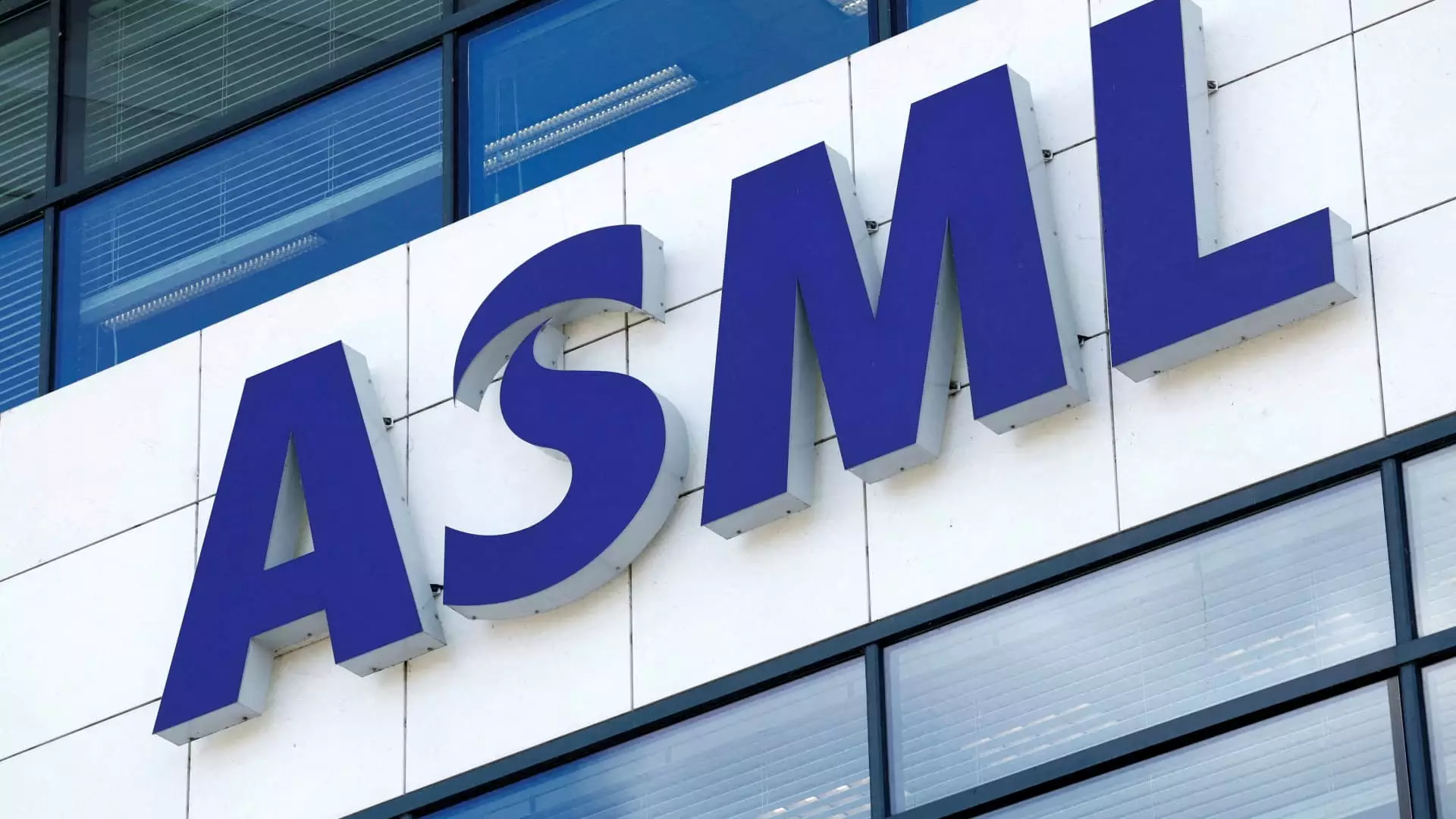ASML recently reported its second-quarter earnings and sales, surpassing forecasts and indicating a positive trend in the semiconductor market. The Dutch firm recorded net sales of 6.24 billion euros, higher than the expected 6.03 billion euros, and net profit of 1.58 billion euros, exceeding the forecasted 1.43 billion euros. This performance was particularly notable as it came at a time when net sales fell by 9.5% year-on-year and net income dropped by 18.7%. Despite these declines, ASML managed to outperform expectations, showcasing its resilience in a challenging market environment.
A significant highlight of ASML’s second-quarter results was the increase in net bookings, which rose by more than 24% year-on-year to 5.6 billion euros. This metric is crucial for the market as it indicates orders for ASML’s machinery, essential for semiconductor manufacturing. Looking ahead, ASML expects a positive industry recovery in the second half of the year, with CEO Christophe Fouquet expressing confidence in the company’s outlook. ASML has maintained its full-year guidance and forecasts third-quarter net sales to be between 6.7 billion euros and 7.3 billion euros, indicating continued growth and stability in the coming months.
ASML’s success can be attributed in part to the increasing demand for artificial intelligence (AI) chips, which are driving growth in the semiconductor sector. The company’s production of extreme ultraviolet (EUV) lithography machines, essential for manufacturing advanced chips, positions it as a key player in the industry. Analysts predict that AI will play a significant role in driving industry recovery and growth, making it a lucrative segment for companies like ASML. Despite AI currently representing a small portion of ASML’s revenues, experts anticipate significant growth in the near future, underscoring the importance of technology advancements in the semiconductor market.
ASML faces geopolitical headwinds, particularly concerning export restrictions on advanced semiconductor equipment. The Dutch government imposed curbs on exports following pressure from the U.S., affecting ASML’s offerings and business operations. Despite these challenges, China remains a critical market for ASML, accounting for a significant portion of its sales. The impact of geopolitical tensions on ASML’s business highlights the complex nature of the semiconductor industry and the need for companies to navigate varying international regulations while maintaining market stability.
In a year marked by significant rallies in semiconductor stocks, ASML has seen a substantial increase in its share price, surging by 44%. This growth underscores investor confidence in the company’s performance and future prospects. ASML’s strategic position in the market, combined with its innovative technology solutions, has solidified its standing as one of the most important semiconductor companies globally. As the industry anticipates a cyclical upturn in 2025, ASML’s continued investments in capacity ramp and technology development position it favorably for future growth and success.
ASML’s recent second-quarter results demonstrate the company’s resilience, innovation, and strategic foresight in a dynamic industry landscape. As demand for advanced semiconductor equipment continues to rise, particularly driven by developments in AI and technology, ASML is well-positioned to capitalize on these opportunities and maintain its competitive edge. Despite geopolitical challenges and market uncertainties, ASML’s strong performance, positive outlook, and market position set a promising trajectory for the company in the coming months and years.

